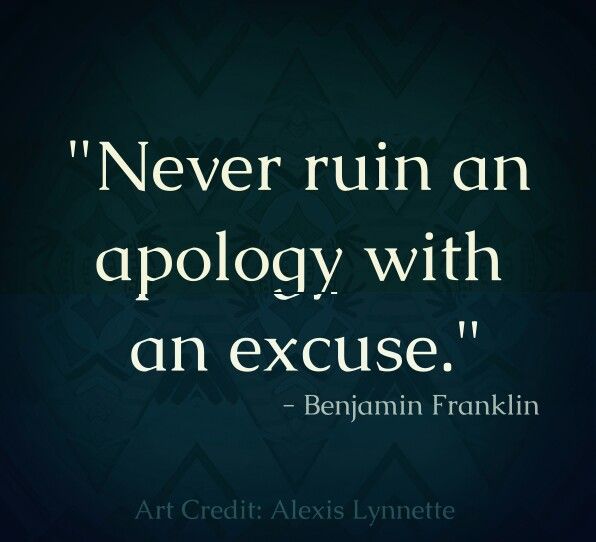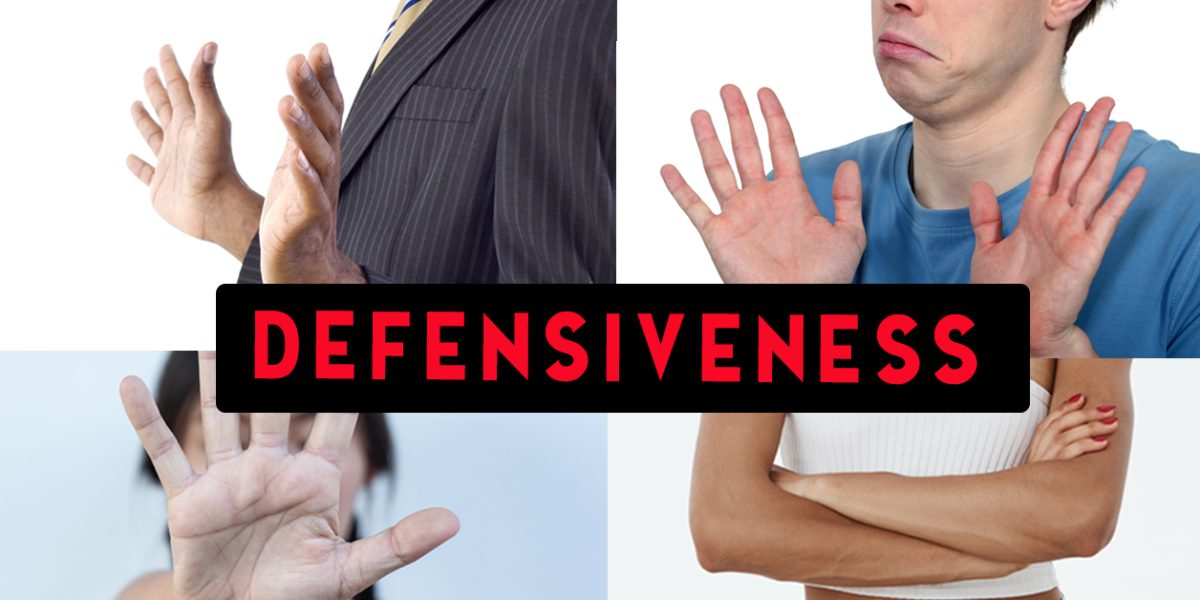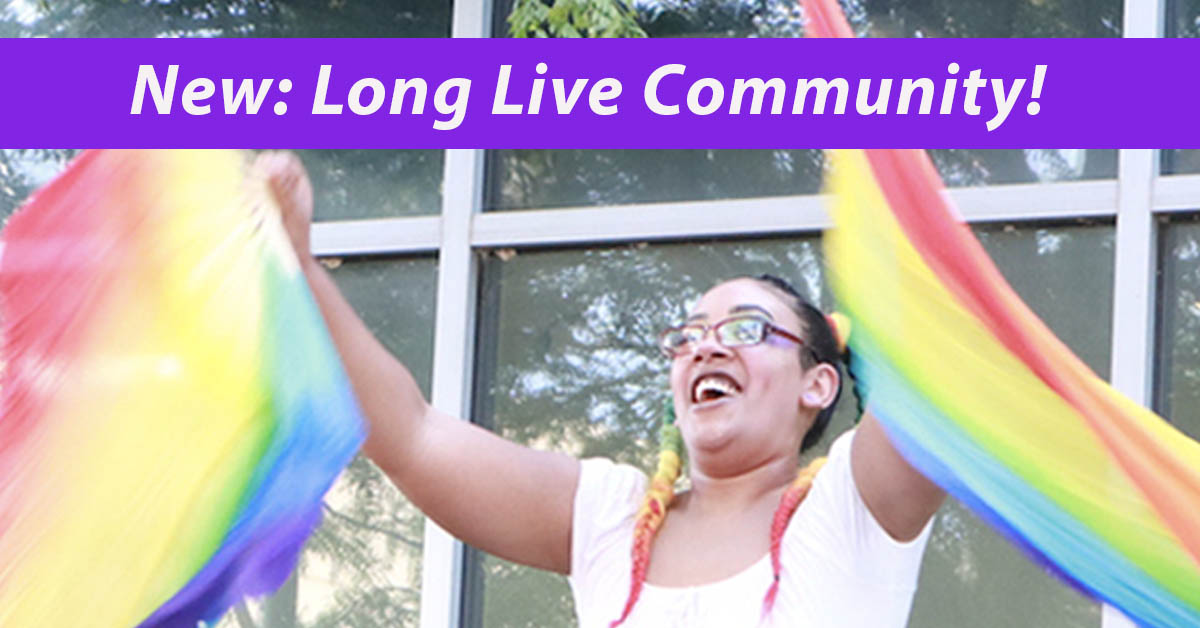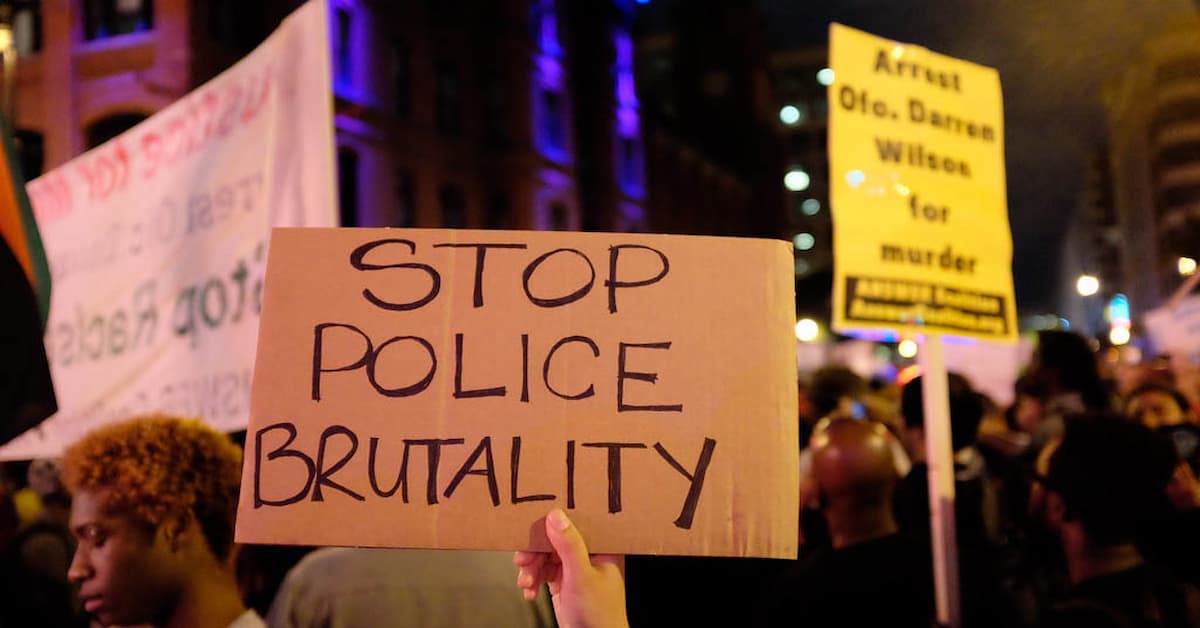Defending your ego. It’s a reflex that makes sense. We naturally want to protect ourselves and our sense of self.
But instead, our frantic efforts to protect our ego often make us look childish, or cause us to lose people’s respect.
For example, let’s say I was talking to Becca and said, “I think Elliot has B.O. and needs to shower more!” Let’s say Elliot overheard me and got upset with me.
I could deflect, make excuses, and do all kinds of mental gymnastics. That’s the ego protection or defensive way to respond. I could say, “Well, I’m not wrong. They do have B.O.” Or, “They shouldn’t have been eavesdropping on my conversation in the first place.” Or, “Well, Jody told me that Elliot called me lazy last week.”
But clearly, I was in the wrong in this situation. The appropriate thing to do would be to apologize and stop talking negatively about other people like that. But most people find this really difficult to do. And it’s usually because of the black and white view we have of ourselves.
Have you ever tried to ask someone to change their behavior because they’re doing something harmful, and they keep insisting “But I’m a nice guy!”? The implication is that if you’re asking them to change their behavior, then they’re doing something hurtful or bad. If they’re doing something bad, then they’re not a “nice guy.” And that makes them a “bad guy,” in most lines of logic.
Other variations: “I don’t ignore your feelings; I’m a GOOD mom.” Or, “What I said wasn’t racist; I’m a GOOD ally.”
The truth is, all people – even good people — are capable of harming others. We all make mistakes. We all have patterns of behavior that we should change. Every single person has done something thoughtless or selfish that has hurt another person. That doesn’t mean that none of us are nice, or good.

Defensiveness sets in because we want to believe we are good.
And being good means we don’t hurt people. So we find any reason to accuse the other of having an ulterior motive for accusing us of hurting them.
When we do mental gymnastics and make up excuses and lies, many people see right through that anyway. We end up presenting ourselves as someone who not only made a mistake, but also lacks integrity. And we end up causing ourselves even more negative emotions, investing time and energy to track our own lies and nonsense.
So, what’s the alternative?
The key is to develop healthy and reasonable expectations of ourselves. We will never stop making mistakes, or unintentionally hurting others.
But we can build up our sense of self and identity strong enough to take on the challenge of owning our mistakes.
Apologizing is freeing. It frees us from unreasonable expectations of ourselves, and relieves us of the mental gymnastics required when we don’t apologize. We can stop believing that messing up makes us a bad person.
We can learn to give effective apologies.
Here are some tips — from me, and from Healthline:
- Identify your feelings before you get defensive. Notice when your focus changes from listening, to making up excuses. What does your body feel like at that time? What happened right before, that led to your shift from listening to talking? Usually, it’s because we are feeling shame.
- Take charge of your own actions. Self-regulate. Think of how you want someone else to respond when they’ve hurt you. Use that to help guide you when making choices about how to respond when someone tells you that you’ve hurt them. Maybe even try repeating some of these phrases inside, instead of excuses:
- “Everyone makes mistakes. It’s ok for me to make mistakes.”
- “It’s impossible for me to never make mistakes. Mistakes are inevitable.”
- “Making a mistake doesn’t make me a bad person.”
- “I have the power to change myself and be better in the future.”
- “I show integrity when I apologize for hurting someone.”
- “Every mistake is an opportunity for learning.”
- Own whatever you can own, of your own actions and words. Don’t spend your time talking about what the other person did or explaining why you said what you said. Focus on what you could have done differently instead of focusing more on what you actually did.
- Communicate that you understand what YOU did wrong (Healthline). Emphasize your commitment to do it differently in the future. Focus on the feelings of the person who is hurt, not your feelings.
- State specifically what you did wrong. Briefly explain HOW you’ll do it differently in the future.
- Ask if the person needs something from you in addition to the apology.
- And no “I’m sorry you feel that way.” No “I’m sorry, but…” No excuses. No qualifiers, No justifications.
We can’t control whether people choose to forgive us, or other people’s perceptions of us. We can’t always have the closure we want. But we can make smart choices that align with our values and focus on controlling our actions instead of explaining them.
We’ll end up feeling better about ourselves, helping the other person feel better, and earning the respect of those whose respect we want.







